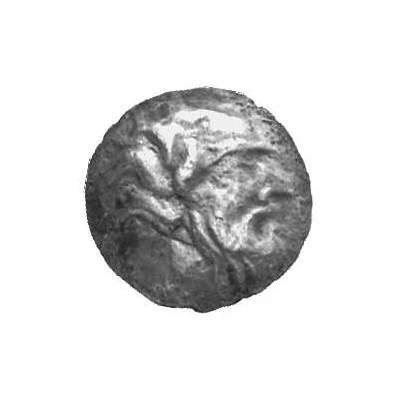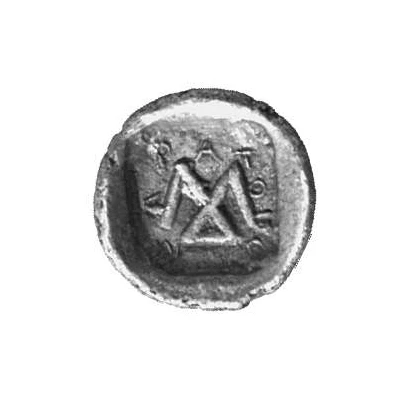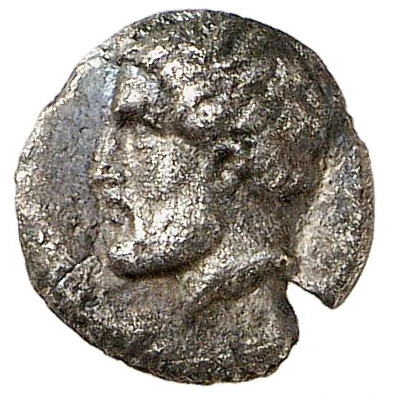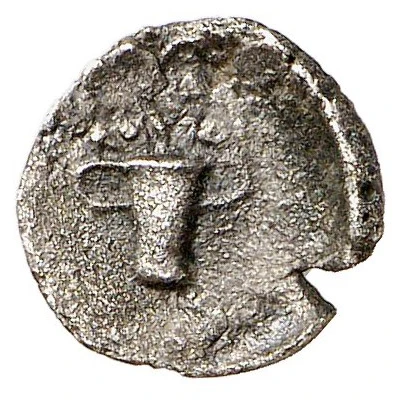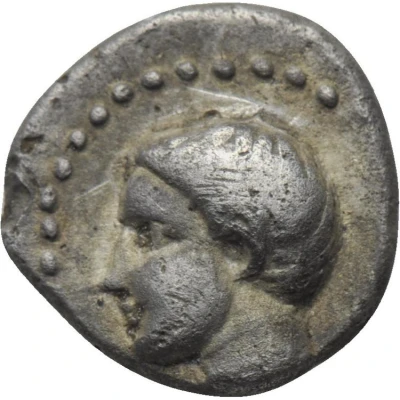
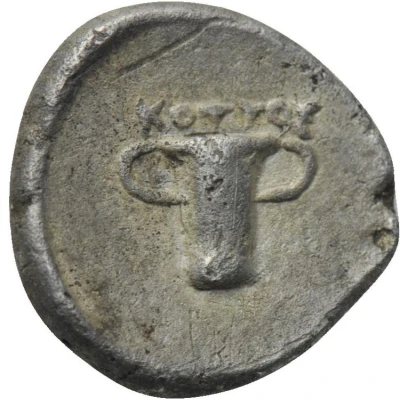

© Numismatik Naumann GmbH
Obol - Kotys I Young head 383 BC - 359 BC
| Silver | 0.7 g | 12 mm |
| Issuer | Kingdom of Odryssa (Thracians) |
|---|---|
| King | Cotys I (383 BC - 359 BC) |
| Type | Standard circulation coin |
| Years | 383 BC - 359 BC |
| Value | Obol (⅙) |
| Currency | Drachm |
| Composition | Silver |
| Weight | 0.7 g |
| Diameter | 12 mm |
| Shape | Round (irregular) |
| Technique | Hammered |
| Demonetized | Yes |
| Updated | 2024-10-09 |
| Numista | N#237852 |
|---|---|
| Rarity index | 100% |
Reverse
Skyphos (deep wine cup with two handles).
Script: Greek
Lettering: KOTYOΣ
Comment
Examples of this type:• Example #1 (0.87 g; 10 mm; Very Fine)
©️ Numismatik Naumann
◦ Auctioned by Numismatik Naumann, Auction 20, 3 August 2014, Lot 69.
• Example #2 (0.74 g; 10 mm; Very Fine)
©️ Numismatik Naumann
◦ Auctioned by Numismatik Naumann, Auction 18, 1 June 2014, Lot 65.
• Example #3 (0.63 g; 10 mm; Very Fine, granular surfaces)
©️ Numismatik Naumann
◦ Auctioned by Nomos AG, Auction obolos 16, 11 October 2020, Lot 121.
Interesting fact
The obol coin of Kotys I (Young head) was used as a form of currency in the Kingdom of Odryssa, which was a Thracian kingdom located in the region of modern-day Bulgaria. The coin features an image of a young king on one side and a javelin-like symbol on the other. It was made of silver and weighed around 0.7 grams. This coin was used for everyday transactions and was also used as a form of tribute or offering to the gods. It's a fascinating piece of history that gives us a glimpse into the economic and cultural practices of ancient Thracian civilizations.
